Empowering Families for a Better Tomorrow Insights from We Learn Everywhere Conference
13.02.24
This event, marked by insightful presentations and discussions, addressed the challenges and opportunities that exist in parenting within our complex society and highlighted the tools created to provide parents with the necessary support for a positive home environment and enhanced family well-being
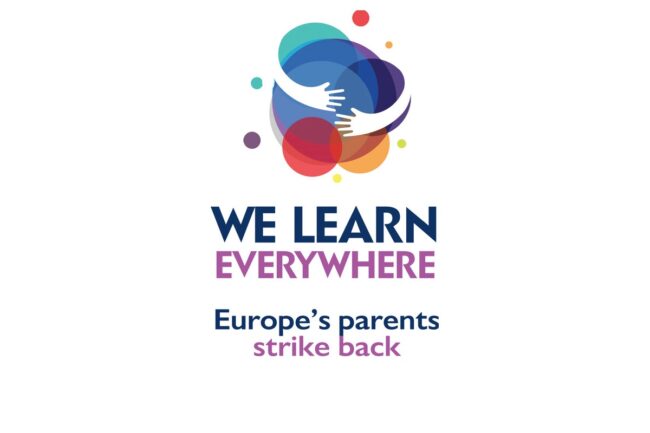
The final EU conference of the We Learn Everywhere project sponsored by Erasmus+ (European Union), which Make Mothers Matter coordinated, took place recently at the European Economic and Social Committee (EESC) in Brussels. The partners of the project include:
UNESSA (BE), CANDIDE (BE), Acción Familiar (ES), Symplexis (EL), ReadLab (EL), University of Torino, dept. of psychology (IT).
Because families need knowledge, resources, and a supportive community to nurture the next generation

The following is the full report of the conference
- Kinga Joó, Vice-president of the EESC Bureau and Vice-President of the Labor Market Observatory kickstarted the conference by presenting some of the key opinions from the EESC relevant to mental health of families and children, such as soft skills and lifelong learning, and the Care Strategy.
In her work as rapporteur of EESC’s opinion on Care, she proposed the launch of a “European Care Guarantee, to ensure life-long access to affordable quality healthcare and care services for everyone living in the EU.” This call also underlined the importance of “supporting families in their fundamental role as caregivers and asked for adopting specific measures to tackle Gender equality and to ensure better distribution of care within households”.
- MEP Istvan Ujhelyi from the EU Parliament’s group of the Progressive Alliance of Socialists and Democrats followed with his address. He spoke of his work advocating for mental health for many years. During the lockdown, he started a programme called “Soul Vaccine” in Hungary with 8 points which highlighted the steps on how to care more about mental health both at a personal and policy level. At the EU Parliament he has been working together with other colleagues from different political parties, advocating for the importance of mental health at the EU.
Since 2022, with the Czech Presidency, the topic of mental health has been on the EU agenda. In June 2023, the European Commission released its plan for a comprehensive approach to mental health in Europe, that tackles mental health holistically, placing it on par with physical health by introducing 20 flagship initiatives and €1.23 billion of dedicated funding. MEP Ujhelyi told the Conference: “We are on a good track, but we face challenges as well. One of the biggest problems remains the question of competence. Health is not an EU competence and it’s not easy to change things in every Member State. European leaders should recognise that investing in health and well-being is not merely a cost but a long-term investment in our society and economy.”
He added: “We need to infuse well-being and health considerations into the very fabric of EU policies, ensuring they don’t remain isolated topics but rather form the cornerstone of decision-making processes.” MEP Ujhelyi ended his speech by advocating for the creation of an EU-wide and also national plan for mental health, a real Mental Health Strategy, which could play an integral part in the European Health Union.
Following Ujhelyi’s intervention, the Conference heard from seven experts, on the topic of education and well-being. Central to the discussions was the undeniable right to quality parenting support — a fundamental pillar for fostering loving, safe, and stimulating environments for children.
- Lucía Jiménez, professor of Developmental and Educational Psychology at the university of Sevilla began her presentation by stating that there is not a single way of being a parent.
She also highlighted the social responsibility of being a parent together with the right of families for quality parenting support.
She focused her presentation on promoting parenting competencies for quality family support. Prof. Jiménez defined Parenting competencies as “the feelings, attitudes, knowledge, skills and strategies required for an adequate performance of parental duties and responsibilities.”
She highlighted that they exist at multiple levels:
– the Individual level (such as adequate perception of the parental role, emotional self-regulation and management of stressful situations
– the Interaction level (such as beliefs about development; affect, communication and acceptance; norms and supervision; stimulation and structuring; school implication
– the Family system level (as house management; shared time as a family; co-parenting
– and the Community level (community support
She based her explanations on extensive research done by both her and other academics, in particular within the framework of the EU project on family support (Eurofamnet).
- Orlanda Cruz, associate professor at the faculty of Psychology and Education Sciences of the University of Porto, approached the question of raising resilient children through the framework of positive parenting for children’s development. She explained how to attain emotional resilience in children and what parents can do to help.
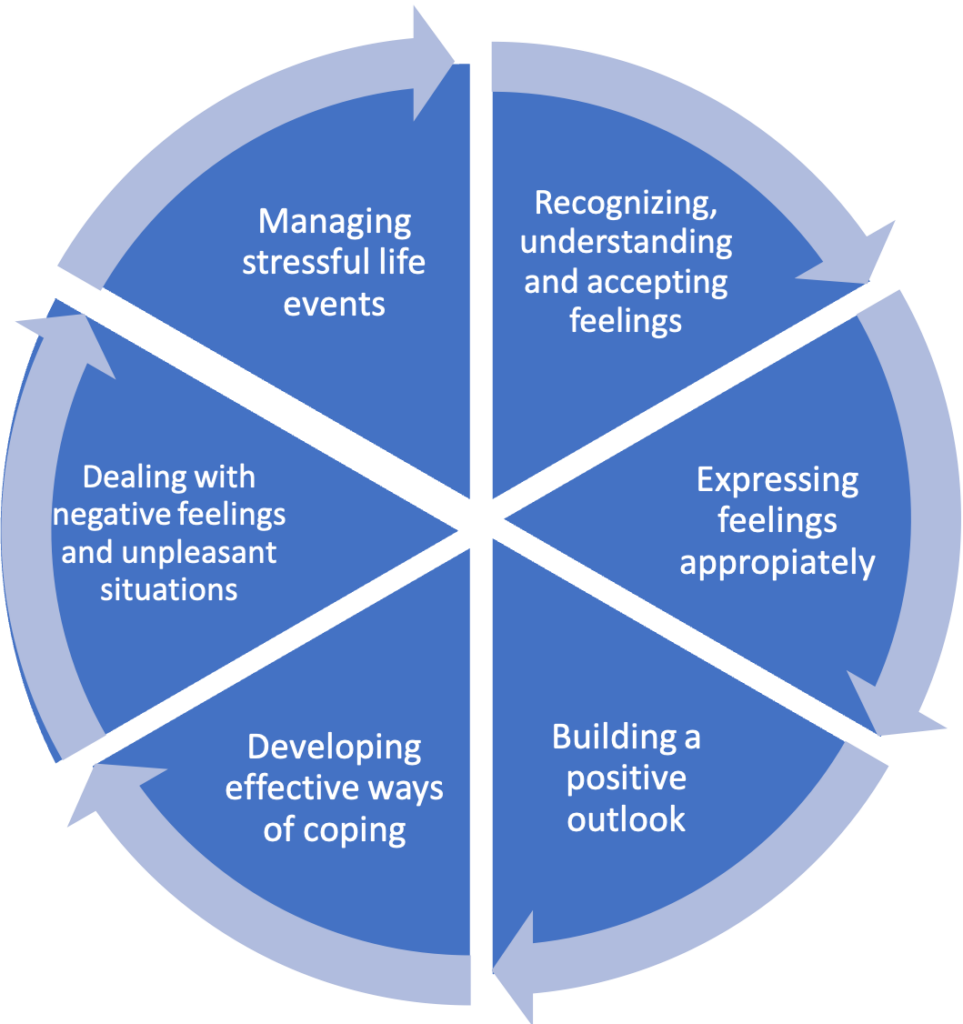
Triple P Seminar Series
She explained that to become emotionally resilient, children must develop the ability to: recognize, understand and accept feelings; express feelings in appropriate ways; face and resolve difficult situations; cope with stressful or upsetting situations.
In summary she added that stressful situations offer children the opportunity to learn how to cope. While coping with difficult situations and finding solutions, children become better prepared to cope emotionally with the challenges that appear later in life, which makes them more emotionally competent.
Parents can promote emotional resilience in their children by turning (negative) feelings into a topic of conversation, helping them to recognize and name emotions, become a model for emotional expressiveness, be optimistic about the world, prompt their emotional problem solving and encourage them to look for support whenever they need it.
- Laura Vismara, professor of Clinical Psychology at the University of Cagliari, presented a study on the effects of “mentalization on parental stress and depression”.
“Mentalization” is a “caregiver’s ability to understand her/his child’s behavior in terms of mental states (feelings, desires, beliefs, and intentions), differentiating the other’s psychological characteristics from one’s own.”
For parents and carers it’s difficult to “mentalize” in the face of intense negative affects (fear, anger, sadness).
A key message of her intervention was that attachment is a primary need, all children attach to their caregivers. Attachment is a secure base. And high “mentalization” in parents produces secure attachment in children.
She explained that during pregnancy many changes may arise. These could include new “representations of yourself “and how these representations are “handled or processed” which could impact the way a mother adapts to pregnancy and parents assume the new parental role. 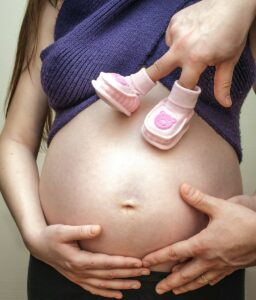
She concluded that interventions in the event of depressive symptoms in parents should facilitate “mentalization” to enhance a sensitive and responsive relationship with their child. As well, findings suggest that screening programs should involve both parents from the onset of pregnancy because “there is no difference between mothers and fathers on “mentalization” in regards to depression and infant behavior scores. Between pregnancy and up to 6 months, fathers show higher parental distress at 6 months.”
- Chiara Piccolo, Head of European Affairs at Learning for Well-Being Foundation (L4WB) presented a framework for well-being. She defined it as ‘realizing one’s unique potential through physical, emotional, mental, and spiritual development in relation to self, others, and the environment. She elaborated on the 9 core capacities, innate from birth, that can be used and nurtured to attain well-being. Those capacities are: relaxing, embodying, observing, sensing, reflecting, listening, inquiring, empathizing, discerning patterns. These capacities help to bring wellbeing to the family, as a living system.
- Sonia Grimm, awakener of untapped talent and Steve Alban Tineo, a professional conflict negotiator, talked about the lack of women taking part in peace processes worldwide and the major obstacles to their personal success. Sonia emphasized that we need to learn to interpret our own thoughts and that we can, through projection and understanding our personal decision-making process. For her, “our thoughts aren’t telling you the truth, they are influenced by: an unconscious selection of the focus, the past experiences, the emotions and feelings and the beliefs and conditioning”. Between 70-95% of our behaviors are unconscious. She said the mantra to have is: “Whatever my past, whatever beliefs I’ve received, whatever experiences I’ve had, I can choose to become aware of them, to become who I want to be. True freedom is being free from the beliefs and conditioning inculcated by others, and by a partial interpretation of reality and of past experiences.”
Following the experts’ panel, the partners of the WLE project underlined the many results of the project:
- A toolkit on children’s mental health and well-being and a set of pedagogical and didactic activities. The booklet addresses professionals, parents and carers from all backgrounds, with a focus on families from disadvantaged backgrounds. It provides them with an introduction to children’s mental health and wellbeing and specifically, on the impact of the pandemic and the transition to the post-pandemic era. It includes high-quality (paedo) psychological information in simple and accessible language and demonstrates ways to safeguard children’s mental health during a (future) crisis or life challenging situation, to mitigate or minimise the mid- and long-term impact of crises such as the pandemic, on children’s mental health. The contents of the toolkit are divided according to children’s age groups, to enable the user to focus on the needs of each specific stage of a child’s life.

The Set of didactic activities is a collection of 39 fun, but also with an educative purpose, activities that are easy to implement, for parents and caregivers to spend some quality time with their children. Thanks to this tool daily family activities will become more fun and engaging for everyone in the family. The activities proposed are divided into eight categories: nature, shopping, cooking, sports, gardening, games, science, arts & craft.
- This booklet allowed for the creation of the Digital learning centre. This platform offers an online course on the challenges modern families face, consisting of 9 educational video modules filled with theory and analysis targeting different age groups. At the end of each module, an interactive quiz provides access to a certificate available upon completion. The digital learning centre also contains an engaging video collection of tutorials, with practical activities for parents and carers based on the Set Didactic Activities. The platform also gives access to the We Learn Everywhere Parents Forum. This is a FaceBook Forum for parents to exchange on the course as well as on other topics of common interest, aimed at bringing them together to share their experiences. The learning centre is multilingual (EN, ES, FR, GR, IT) and free for all to use.
- Another complementary result developed through the project is the Virtual Library, a collection of more than 60 free and accessible resources, from external authors, as well as a glossary. This Library is available in more than 12 languages on the We Learn Everywhere project’s website.
- In addition, 12 training sessions in 4 countries have been organized, involving 213 parents, with a learning and matching programme, involving more than 80 people (parents, adult staff educators and future professionals). The aim being to connect parents, caregivers and future professionals across the partner countries, to share experiences. Conducted through videocalls, this allows for direct communication. All these experiences shared in the project also resulted in a We Learn Everywhere podcast and a documentary film, a preview of which was presented during the event.
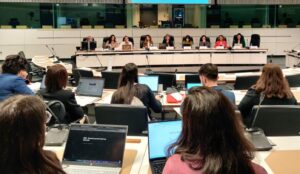
The conference culminated in a round-up by Johanna Schima, Head of the EU Delegation at Make Mothers Matter. She called for the implementation of a policy framework aligned with the Convention on the Rights of the Child and the Positive Parenting Recommendation. This underscores the importance of parenting competences, including emotional self-regulation, stress management, and adaptability, as crucial for the healthy development of children and families.
As the conference concluded, the message was clear: supporting families through knowledge, resources, and a supportive community is imperative for nurturing the next generation. This event has set the stage for ongoing efforts to promote family well-being, championing a future where every child and family can thrive.
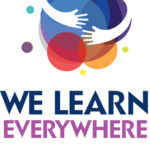


The New EU Gender Equality Roadmap : A Call for Inclusion of Mothers
04.03.25
The European Commission’s initiative on a new Gender Equality Roadmap post-2025, marks a significant step forward in addressing gender disparities across the European Union. Make Mothers Matter (MMM
Breaking the Cycle: Gender Equality as a Path to Better Mental Health
18.03.25
The Council of the European Union has taken a decisive step in recognising the vital connection between gender equality and mental health.
Europe Must Listen to Mothers: Our landmark report heads to the European Parliament
28.08.25
On 22 September 2025, the voices of mothers will take centre stage in Brussels. For the first time, Make Mothers Matter (MMM) will present its State of Motherhood in Europe








